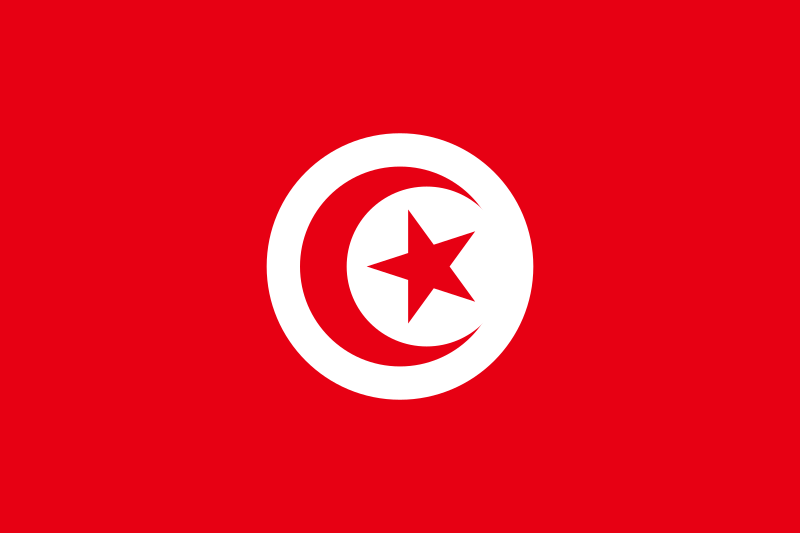 Tunisia (pronounced US: /tjuːˈniːʒə/ tew-NEE-zhə, UK: /tjuːˈnɪziə/ tew-NIZ-iə; Arabic: تونس Tūnis), officially the Tunisian Republic(الجمهورية التونسية al-Jumhūriyya at-Tūnisiyya), is the northern most country in Africa. It is bordered by Algeria to the west, Libya to the southeast, and the Mediterranean Sea to the north and east. Its area is almost 165,000 km², with an estimated population of just over 10.3 million. Its name is derived from the capital Tunis located in the north-east.
Tunisia (pronounced US: /tjuːˈniːʒə/ tew-NEE-zhə, UK: /tjuːˈnɪziə/ tew-NIZ-iə; Arabic: تونس Tūnis), officially the Tunisian Republic(الجمهورية التونسية al-Jumhūriyya at-Tūnisiyya), is the northern most country in Africa. It is bordered by Algeria to the west, Libya to the southeast, and the Mediterranean Sea to the north and east. Its area is almost 165,000 km², with an estimated population of just over 10.3 million. Its name is derived from the capital Tunis located in the north-east.
Tunisia is the smallest of the nations situated along the Atlas mountain range. The south of the country is composed of the Sahara desert, with much of the remainder consisting of particularly fertile soil and 1,300 km of coastline. Both played a prominent role in ancient times, first with the famous Phoenician city of Carthage, then as the Africa Province which was known as the “bread basket” of the Roman Empire. Later, Tunisia was occupied by Vandals during the 5th century AD, Byzantines in the 6th century, and Arabs in the 8th century. Under the Ottoman Empire, Tunisia was known as “Regency of Tunis”. It passed under French protectorate in 1881. After obtaining independence in 1956, the country took the official name of the “Kingdom of Tunisia” at the end of the reign of Lamine Bey and the Husainid Dynasty. With the proclamation of the Tunisian republic on July 25, 1957, the nationalist leader Habib Bourguibabecame its first president and led the modernization of the country.
Today Tunisia is an export-oriented country, in the process of liberalizing its economy while politically it is a dictatorship in all but name. Tunisia has an authoritarian regime in the guise of a procedural democracy led by Zine El Abidine Ben Ali who has governed as President since 1987 and has systematically diminished freedom of press and political pluralism while keeping appearances of democracy.
Tunisia has close relations with both the European Union — with whom it has an association agreement — and the Arab world. Tunisia is also a member of the Arab League and the African union. The regime’s claimed success in oppressing political Islam and its pro-western foreign policy have protected it from criticism for its lack of democratic accountability and its violations of human rights and freedom of press. France, the former colonial power, lends support to the regime in exchange for which Tunisia in large part aligns its economic and foreign policies with those of France.
Every year numerous Tunisians attempt illegal immigration to European countries like Italy by sea. Many die trying when the small boats in which they are riding capsize or go adrift at sea. Others reach their destination but are forcibly repatriated.

Notes from Wikipedia








